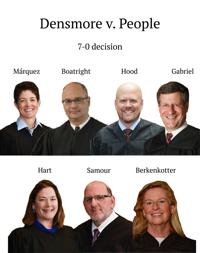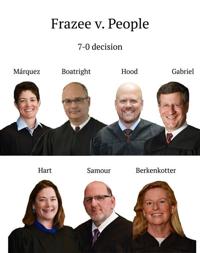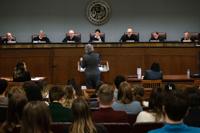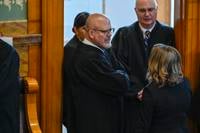Colorado justices say child welfare workers not required to give Miranda warning before interrogating parents
Q29sb3JhZG8gU3VwcmVtZSBDb3VydCBKdXN0aWNlcyAoZnJvbSBsZWZ0KSBDYXJsb3MgQS4gU2Ftb3VyIEpyLiwgUmljaGFyZCBMLiBHYWJyaWVsIGFuZCBCcmlhbiBELiBCb2F0cmlnaHQgbGlzdGVuIHRvIGFyZ3VtZW50cyBmcm9tIEpha2UgRGF2aXMsIGFuIGF0dG9ybmV5IGluIHRoZSBOb25odW1hbiBSaWdodHMgUHJvamVjdCB2LiBDaGV5ZW5uZSBNb3VudGFpbiBab29sb2dpY2FsIFNvY2lldHkgY2FzZSwgYXMgcGFydCBvZiBDb3VydHMgaW4gdGhlIENvbW11bml0eSBhdCB0aGUgV29sZiBMYXcgYnVpbGRpbmcgYXQgVW5pdmVyc2l0eSBvZiBDb2xvcmFkbyBCb3VsZGVyIG9uIFRodXJzZGF5LCBPY3QuIDI0LCAyMDI0LiBUaGUgc2VtaS1hbm51YWwgZXZlbnQgZW50YWlscyB0aGUgQ29sb3JhZG8gU3VwcmVtZSBDb3VydCBoZWFyaW5nIGFyZ3VtZW50cyBiZWZvcmUgYW4gYXVkaWVuY2Ugb2Ygc3R1ZGVudHMgdGhyb3VnaG91dCB0aGUgc3RhdGUuIChTdGVwaGVuIFN3b2Zmb3JkLCBEZW52ZXIgR2F6ZXR0ZSk=
U3RlcGhlbiBTd29mZm9yZCBEZW52ZXIgR2F6ZXR0ZQ==
The Colorado Supreme Court ruled on Monday that child welfare workers are not required to give a Miranda warning to parents before interrogating them in custody, even if the interview or the notes will later be shared with prosecutors and used against the parent at trial.
Miranda warnings, named after the landmark U.S. Supreme Court case Miranda v. Arizona, are required when law enforcement interrogates a person in custody. They advise a suspect of their rights to remain silent and to consult with an attorney. A Miranda violation could result in the prosecution being barred from using the statements at trial.
However, a Miranda warning is also necessary when a third party acts as an agent of law enforcement — to avoid the possibility police will use civilian interrogators to gain incriminating information.
In a pair of Feb. 10 decisions, the state Supreme Court clarified it is only when the “totality of the circumstances” suggests a caseworker is acting at the behest of law enforcement that it is necessary to inform suspects of their constitutional rights.
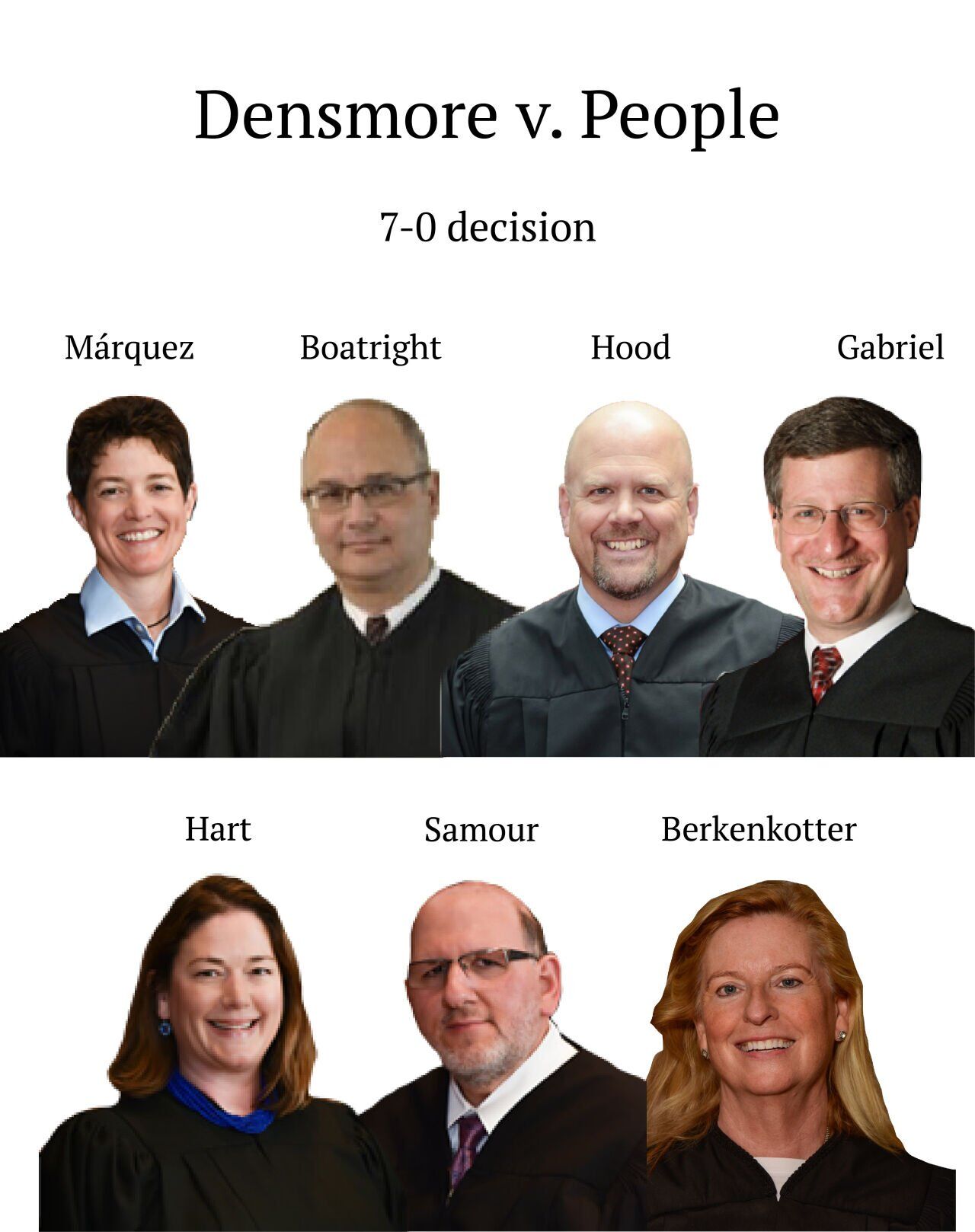

If caseworkers needed to provide a warning every time they spoke with detained parents who are facing potential criminal charges, “such a rule would, as a practical matter, cover most child welfare interviews that caseworkers conduct,” wrote Justice Richard L. Gabriel.
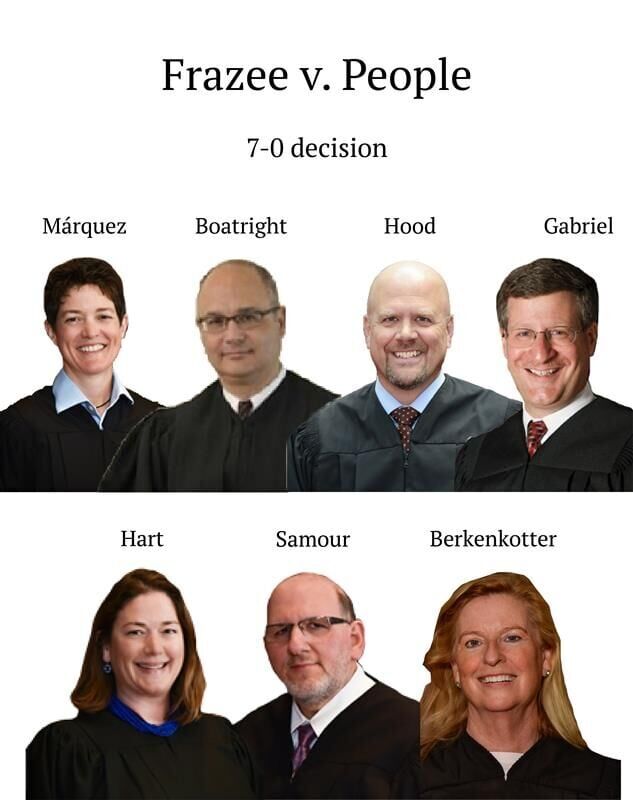

It was unclear when a warning might ever be warranted, outside of explicit cooperation with law enforcement. The Colorado Attorney General’s Office, which litigated the appeals for the government, did not immediately respond to a request for comment.
Ian Farrell, an associate professor of criminal law at the University of Denver, called the decisions “problematic” and contrary to the intent behind the original Miranda ruling: to protect defendants from being convicted using incriminating statements they felt compelled to make in custody.
“Caseworkers would be perfectly entitled to conduct interviews, even in custody, and to use the information they obtained to make decisions regarding the child’s welfare — which is the purpose of the interviews,” Farrell said. “The only consequence of Miranda applying would be that prosecutors could not additionally use the statements in a criminal trial” in the absence of a warning.
The state’s Court of Appeals previously upheld the murder convictions of two men, both of whom spoke to a caseworker while under arrest. In each instance, they were not informed of their rights to remain silent and to consult with an attorney first. Both defendants had their interviews used as evidence at trial.

The Colorado Supreme Court hears a rebuttal from First Assistant Attorney General Wendy J. Ritz during arguments for People v. Rodriguez-Morelos as part of Courts in the Community at the Wolf Law building at University of Colorado Boulder on Thursday, Oct. 24, 2024. The semi-annual event entails the Colorado Supreme Court hearing arguments before an audience of students throughout the state. (Stephen Swofford, Denver Gazette)
Stephen Swofford Denver Gazette

The Colorado Supreme Court hears a rebuttal from First Assistant Attorney General Wendy J. Ritz during arguments for People v. Rodriguez-Morelos as part of Courts in the Community at the Wolf Law building at University of Colorado Boulder on Thursday, Oct. 24, 2024. The semi-annual event entails the Colorado Supreme Court hearing arguments before an audience of students throughout the state. (Stephen Swofford, Denver Gazette)
In the first case, a Boulder County jury convicted Adam Douglas Densmore of killing and dismembering Ashley Mead, dumping her remains as he traveled from Colorado to Louisiana and back. At the time police arrested him in Oklahoma, Densmore was with his and Mead’s toddler. Jessica Punches, a welfare worker, took custody of the child and learned the mother’s whereabouts were unknown.
Although police gave Densmore his Miranda warning and he invoked his right to counsel, Punches began questioning him in the jail about “where the mother was,” among other topics. The meeting was recorded and a federal agent was present. Punches had a follow-up call as part of her work to create a plan for the child, and continued to ask about Mead.
During the conversations, Densmore admitted to hitting Mead. Punches later shared the interviews with law enforcement in Colorado after getting clearance from her supervisor.
In the second case out of Teller County, a jury convicted Patrick Frazee of murdering Kelsey Berreth, who was also his child’s mother. Key testimony came from Frazee’s mistress, who Frazee enlisted to clean the crime scene and help dispose of Berreth’s body.
As with Densmore, child welfare worker Mary Longmire interrogated Frazee days after he was jailed about the “timeline of events.” She talked with the Woodland Park police chief beforehand about the case and sent a 16-page summary to the prosecution afterward.
In both instances, the Court of Appeals concluded Densmore and Frazee’s interrogators were not acting as agents of law enforcement.
“To be sure, Punches was a government employee,” wrote Judge Stephanie Dunn in Densmore’s case. However, “there’s no evidence that law enforcement directed, controlled, or participated in Punches’ child welfare investigation. More specifically, Punches never consulted — or coordinated — with law enforcement about questions to ask Densmore.”
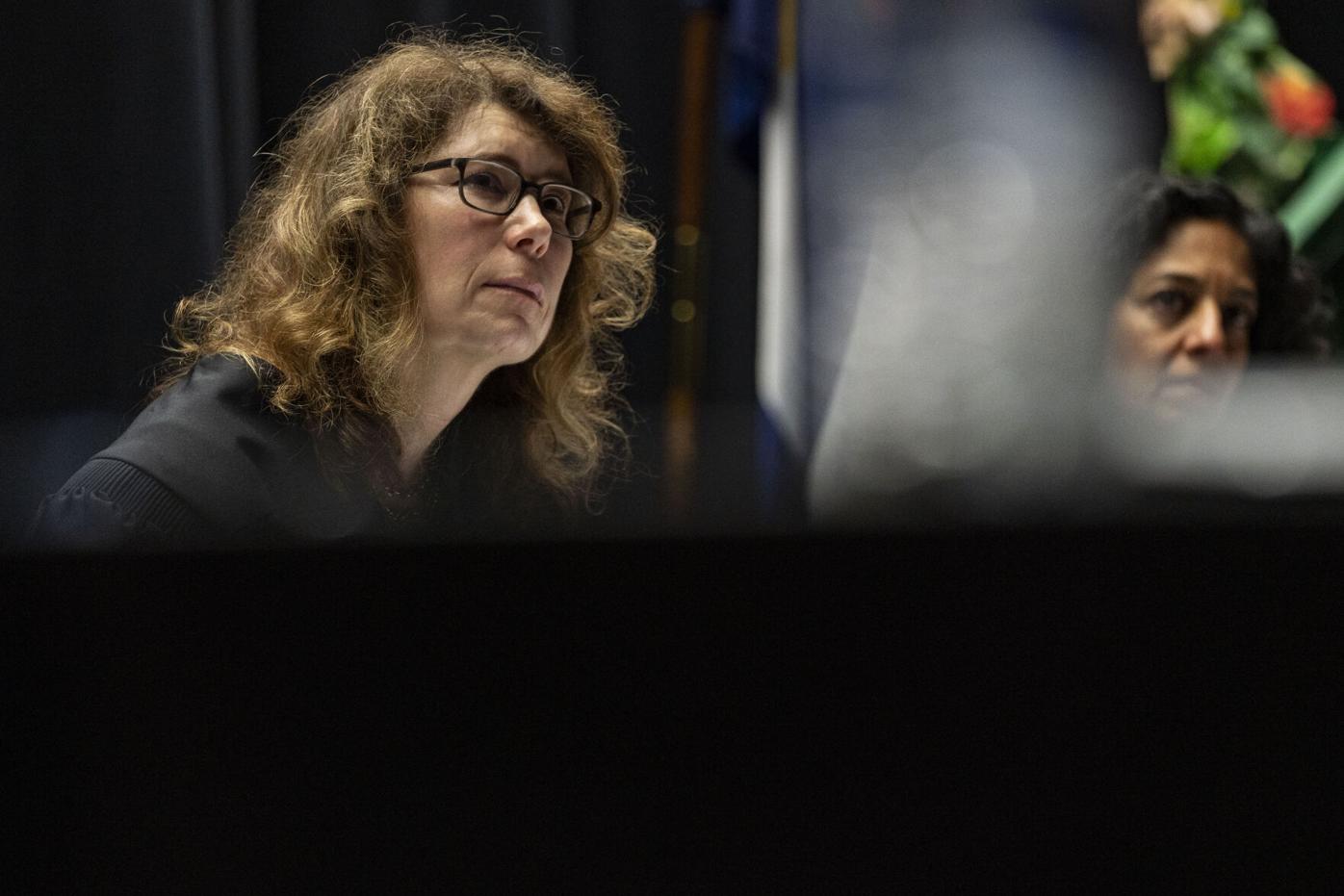
Colorado Court of Appeals Judge Stephanie Dunn listens during the case of People v. Dooley at Fort Lupton High School on Tuesday, April 2, 2024 in Fort Lupton, Colorado. The Colorado Court of Appeals and Supreme Court hold a "Courts in the Community" events for students to learn about the justice system and hear real cases. (Rebecca Slezak For The Denver Gazette)
Rebecca Slezak

Colorado Court of Appeals Judge Stephanie Dunn listens during the case of People v. Dooley at Fort Lupton High School on Tuesday, April 2, 2024 in Fort Lupton, Colorado. The Colorado Court of Appeals and Supreme Court hold a “Courts in the Community” events for students to learn about the justice system and hear real cases. (Rebecca Slezak For The Denver Gazette)
Multiple outside groups weighed in to the Supreme Court, asking the justices to consider caseworkers’ need to place children in a safe environment, on the one hand, or to stop police from effectively turning over interrogations to third parties in the name of avoiding constitutional safeguards, on the other.
During oral arguments in December, the government stressed to the Supreme Court that defendants’ own statements can be the strongest evidence, and those should not be barred for lack of a Miranda warning by a non-police officer. But some justices wondered why the rights of defendants necessarily had to give way so that welfare agencies could protect their children.
“We seem to sort of frame this as a binary. Either the caseworker gets to ask the full panoply of questions, including questions that involve substance abuse and domestic violence and things that could clearly be incriminating, or nothing at all,” observed Justice William W. Hood III. “Why is it so harmful to children to say, ‘If you’re going to ask about things that are incriminating, then you need to Mirandize?'”

Justice William W. Hood III speaks to another attendee of Gov. Jared Polis' 2025 State of the State address on Thursday January 9, 2025 at the Colorado State Capitol. Special to Colorado Politics/John Leyba
John Leyba

Justice William W. Hood III speaks to another attendee of Gov. Jared Polis’ 2025 State of the State address on Thursday January 9, 2025 at the Colorado State Capitol. Special to Colorado Politics/John Leyba
While the Supreme Court did not ultimately rule that Miranda warnings are never required, the justices agreed that in neither Densmore nor Frazee’s case was a warning warranted. Despite the caseworkers’ cooperation and consultation with law enforcement — and the evidence they turned over for use at trial — they were “neither law enforcement officers nor agents of law enforcement.”
“Punches’s investigation was not aimed at uncovering violations of law, developing evidence in a criminal case, or enforcing criminal law, even if her investigation ultimately uncovered facts that subsequently became relevant in the criminal investigation concerning Densmore,” wrote Gabriel.
The cases are Densmore v. People and Frazee v. People.





